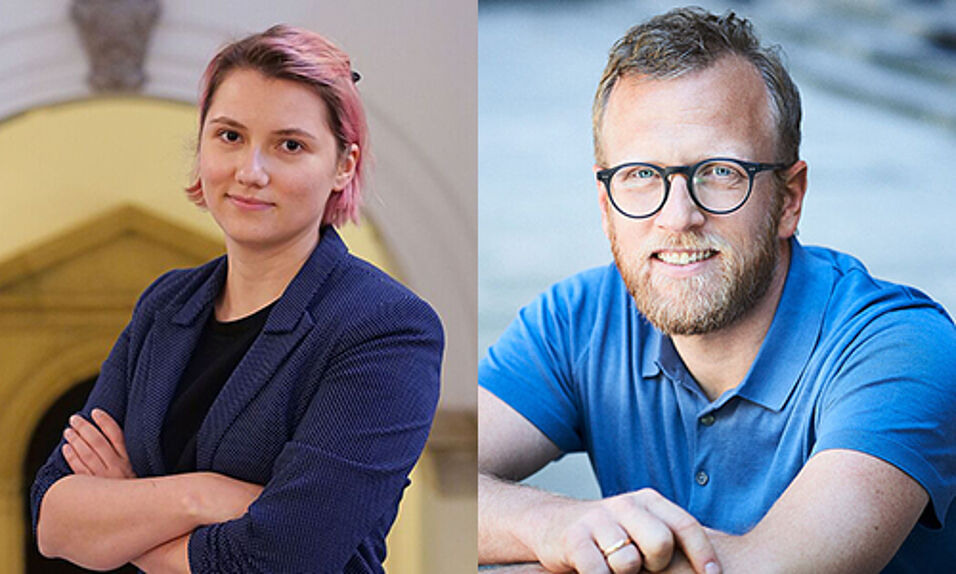Article by Annika Arndt (✉ annika.arndt@univie.ac.at)
Individuals often associate news avoidance with lower political knowledge and limited political participation. Users may perceive news avoidance as both a conscious and unconscious decision influenced by various factors, resulting in different consequences. These different dimensions and factors contributing to those types of avoidance have been overlooked in previous research. An online survey conducted in June and July 2021 with 1007 participants in Austria aimed to address this research gap. The goal was to identify various types of news avoiders and establish a connection between intentionality and news consumption.
The majority of individuals actively avoiding news reveal that this avoidance is not necessarily linked to low news consumption but can often be seen as a byproduct of news utilization. Both a perceived lack of civic duty to keep informed and low political interest contribute to both types of avoidance. However, there are clear differences in predictors: high intentional news avoidance is more attributed to dissatisfaction with the negativity of news, while low news consumption is associated with a general lack of trust in media and politics.
News is a fundamental element of a functioning democracy. It provides citizens with information, serves as a platform for public debates, and positions itself as a political watchdog. While news, awareness, and information are essential for the political participation of all citizens, a trend has emerged – news avoidance. This phenomenon has captured the interest of researchers, as there is often an assumed association between news avoidance and lower political knowledge and participation, coupled with greater misinformation about current events. Due to its relevance, several studies have explored the topic, but results across the globe differ due to using various definitions of news avoidance.
To address this research gap of comparing different news avoidance types and their predictors, communication scientists Dominika Betakova, Hajo Boomgaarden, Sophie Lecheler, and Svenja Schäfer investigated the different types and indicators. The cross-sectional online survey study aimed to examine the relationship between intentional news avoidance and low news consumption on one hand and to identify factors shaping both dimensions. In addition to these factors, the study sought to define specific types of news avoiders.
News avoidance and news consumption: Intention and scope
Based on previous studies and theories, researchers have defined two types of news avoidance. Firstly, there is intentional news avoidance, driven by specific motivations. This form is understood as a conscious decision to avoid unpleasant feelings associated with news consumption. Secondly, there is the type of news avoider who consumes news to a minimal extent. This low to nonexistent news consumption can occur intentionally or unintentionally.
For the researchers, it was particularly interesting and relevant to understand what influences who can be identified as news avoider of one type or the other. In summary, it is crucial for the outlined typology of news avoidance to consider the (conscious) intention and the scope of avoidance in research. The unraveling of the combination of intention and the extent of news consumption is essential to comprehend specific types of news avoidance.
Within the study, both intentional news avoidance and low news consumption were explored simultaneously. In this context, predictions were identified to explain who falls into these two dimensions. To systematically investigate this, four groups of news (non-)users were created.
- Intentional avoiders who consume little to no news,
- Individuals with high news avoidance but average or high news consumption,
- Individuals with average or low intentional news avoidance and low news consumption,
- Individuals with average or low intentional news avoidance and average or high news consumption.
The method: An online survey in Austria
For the survey, individuals aged 18 and above residing in Austria were interviewed. Conducted in June and July 2021, the headlines during this period were dominated by COVID-19, the UEFA European Football Championship, and immigration issues, shaping the media landscape. Participants were directly questioned about their intentional news avoidance. The questionnaire also gathered data on media consumption directly by addressing usage across various platforms. Additionally, researchers inquired about media trust and political perceptions, exploring, for instance, political interest, trust, efficacy, and the civic duty to keep informed.
The four groups of news avoiders and users
The study's results identified four main groups of news avoiders and news users:
The first group is relatively small in numbers and intentionally avoids news and exhibits overall low news consumption. Such an avoider is more probable to be a woman, have lower political interest, less political trust, and a weaker sense of civic duty to keep informed, leading them to intentionally consume fewer news. The majority of individuals who consume little to no news do so unintentionally, confirming previous findings.
The second group, characterized by low news consumption without intentional avoidance, is associated with low income, lower internal political efficacy, a belief of being able to navigate politics, and surprisingly lower perceived news negativity. However, there is a lot we don't know, which could suggest the role of structural or habitual factors. A low but significant negative correlation exists between intentional news avoidance and news consumption. "When examining predictive factors for high intentional news avoidance and low news consumption, both types of news avoidance share common factors such as a lower perception of civic duty to keep informed and lower political interest", explains study author Dominika Betakova.
The third group is characterized by average to high news consumption despite high intentional news avoidance. This group consists of intentional news avoiders who still maintain average or high news consumption. This suggests that intentional news avoidance can sometimes be a byproduct of higher news consumption. Surprisingly, Dominika Betakova notes that "... this group tends to be younger, perceives the news as negative, reports sometimes having physical reactions to it, such as trouble falling asleep, while not seeing following the news as their civic duty."
The fourth and final group are media consumers who do not avoid the news, which is the majority of people in the sample. Individuals in this group have higher political interest, a high income, and, according to the researchers, "a stronger sense of civic duty to keep informed."
In conclusion, addressing intentional news avoidance and low news consumption requires different strategies. Intentional news avoidance could be countered by promoting solutions-oriented, constructive journalism emphasizing positivity. On the other hand, initiatives countering low news consumption should focus on enhancing trust in journalism, for instance by promoting inclusivity. Moreover, promoting media literacy, especially through early interventions in schools, could be an effective strategy to counter low news consumption. Additionally, short-term intentional news avoidance of certain topics may be helpful for individuals who consume a lot of news, based on the human need to take a break from emotionally distressing topics.



